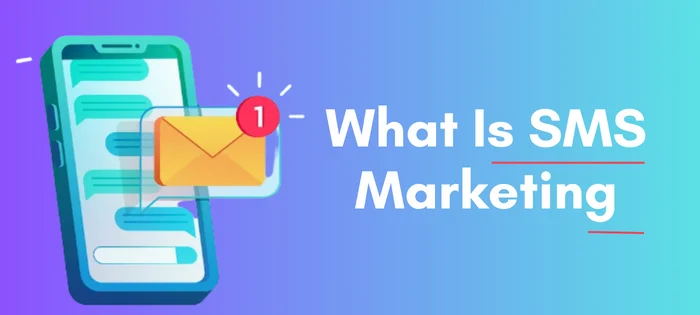What Is SMS Marketing: Understanding SMS Marketing [In-depth Guide]
Have you ever received a text message from a business offering a special discount, reminding you of an appointment, or announcing a new product? If so, you’ve been at the receiving end of an SMS marketing campaign.
This powerful tool leverages the prevalence of mobile devices in our lives, making it an invaluable resource in today’s ever-evolving digital landscape.
- What makes SMS marketing unique?
- How can businesses implement it in their marketing strategies effectively? And,
- How does it stack up against other marketing channels?
In this in-depth guide, we will traverse the landscape of SMS marketing, shedding light on its key components, benefits, compliance requirements, and how it compares to other marketing channels.
This comprehensive guide is meant to empower marketers and business owners alike to fully understand, utilize, and harness the potential of SMS marketing.
The Genesis of SMS Marketing

Before we delve deeper, let’s take a brief look at the history of SMS marketing. The first SMS, or Short Message Service, was sent in December 1992 by a 22-year-old British engineer named Neil Papworth.
His message, “Merry Christmas,” was sent from a computer to a mobile device and marked the birth of a new communication era.
The potential of SMS as a marketing tool began to take shape in the early 2000s. Businesses realized they could use this medium to send targeted, personal, and timely messages to their customers.
Over the past two decades, SMS marketing has evolved significantly, moving from a niche technique to a mainstream marketing strategy adopted by businesses across industries.
The effectiveness of SMS marketing is often underestimated. However, it carries an array of benefits that make it a powerful tool in a marketer’s arsenal. One of the main advantages is its high engagement rates.
Text messages boast an impressive open rate of about 98%, meaning that almost every text sent is read by the recipient.
Compared to email marketing, which has an average open rate of around 20%, the effectiveness of SMS marketing is clear.
Additionally, SMS marketing ensures immediate reach. Studies show that over 90% of text messages are read within three minutes of delivery.
This swift engagement means businesses can rely on SMS marketing for the timely delivery of crucial information and updates.
Lastly, with the dramatic global rise in mobile phone usage, SMS marketing can potentially reach an unprecedented number of people.
As of 2023, there are nearly 7.33 billion mobile users worldwide. This broad reach makes SMS marketing an excellent choice for businesses looking to connect with a vast audience.
We have a post dedicated solely to the evolution of SMS Marketing.
The Key Components of SMS Marketing

A successful SMS marketing campaign isn’t just about sending text messages to a list of phone numbers. Several elements need to be carefully considered and well-executed to ensure the campaign’s effectiveness and legality.
1. Opt-in/Opt-out Mechanisms

One of the most important aspects of SMS marketing is the opt-in/opt-out mechanism. This is not just a best practice but a legal requirement in many jurisdictions.
Before a business can start sending marketing text messages, customers must give their explicit consent, usually through an opt-in process. This process could be as simple as ticking a box on a signup form or replying ‘YES‘ to a text message.
The opt-in process forms the foundation of an ethical and legal SMS marketing campaign. It ensures respect for the privacy of customers and promotes a positive customer relationship. After all, no one likes to receive unsolicited messages.
Equally important is providing an easy and clear opt-out method for recipients who no longer wish to receive these messages. It could be as simple as including instructions like “Reply STOP to unsubscribe” in your messages.
Providing a straightforward way for customers to opt-out respects their preferences and helps maintain a positive brand image.
2. SMS Gateways

In the world of SMS marketing, an SMS gateway plays a crucial role. An SMS gateway allows a computer to send or receive Short Message Service (SMS) transmissions to or from a telecommunications network.
Most messages are eventually routed into mobile phone networks. Businesses can use various platforms that offer SMS gateway services, allowing them to send bulk SMS messages to their customers.
For businesses, choosing the right SMS gateway provider can make all the difference. Factors such as reliability, speed, cost, ease of use, scalability, and customer support should be considered when selecting an SMS gateway.
Here is a list of the best SMS Marketing tools out there.
3. Personalization

In today’s internet age, personalization is key to any marketing strategy, and SMS marketing is no exception. Personalized text messages can dramatically increase engagement rates.
This strategy might include addressing the customer by their first name or sending offers tailored to their purchasing history.
For example, a retail business can send a text message to a customer saying, “Hi [Customer’s Name], based on your previous purchases, we thought you might like our new collection of [relevant product]. Use this discount code [Code] to get 20% off!“
Such messages make the customer feel valued and appreciated, which can significantly enhance their engagement with your brand. Furthermore, this kind of personalized marketing increases the chances of a customer taking action, such as making a purchase.
4. Timing and Frequency
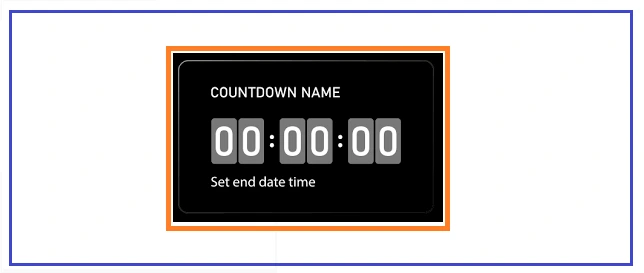
The timing and frequency of text messages are crucial to the success of an SMS marketing campaign. Businesses must carefully plan when and how often they send out text messages to avoid annoying customers.
Too many messages and customers may opt out; too few, and businesses might miss opportunities.
It’s essential to strike a balance between engaging customers and respecting their space. The right frequency of messages may vary depending on the nature of your business and the preferences of your customers.
It’s a good idea to test different frequencies and analyze customer responses to find what works best for your audience.
In terms of timing, studies have shown that the best times to send SMS messages are during lunch hours and in the evening.
However, this can also vary depending on your target demographic and the nature of your message. It’s important to remember that the timing of your messages can significantly impact their effectiveness.
Benefits of SMS Marketing

There are several reasons why SMS marketing is a popular choice among marketers today. Let’s delve into some of these benefits:
High Open Rates

As mentioned earlier, SMS messages have a whopping 98% open rate. This high rate means that your message is almost guaranteed to be read by the recipient.
The reason for this astonishing open rate is the intimate nature of text messages.
Most people keep their mobile phones within arm’s reach at all times, meaning they are likely to see and open your text message almost instantly.
Immediacy
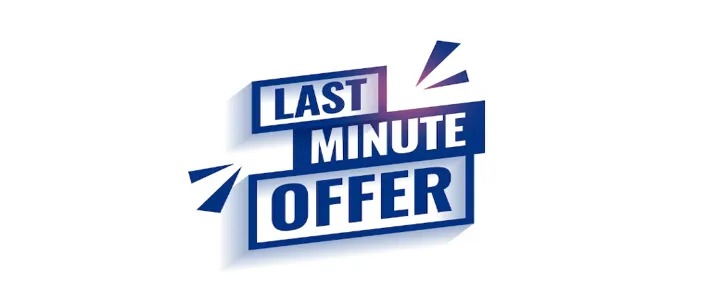
SMS marketing is immediate. The majority of text messages are read within three minutes of being received, making this channel perfect for last-minute promotions or urgent notifications.
This immediacy can be particularly beneficial in scenarios like flash sales, appointment reminders, or important updates that need immediate attention.
Cost-effectiveness

Compared to other marketing channels, SMS marketing can be quite cost-effective. Businesses do not need a large budget to reach out to thousands of customers.
With SMS marketing, small businesses can also compete with larger ones by reaching a broad audience without incurring substantial marketing expenses.
Personalized Communication

SMS allows businesses to have personalized one-on-one conversations with their customers. With the right use of customer data, businesses can tailor each message to the recipient, making communication more effective.
This level of personalization is often difficult to achieve with other marketing channels.
SMS Marketing vs. Other Marketing Channels

Considering the plethora of marketing channels available today, you might wonder, “Why should I opt for SMS marketing?” Let’s dive into some comparisons
to clarify the unique advantages SMS marketing offers.
SMS Marketing vs. Email Marketing

The first comparison that often comes to mind is between SMS marketing and email marketing. These two channels have been pitted against each other for years, with each having its pros and cons. However, when it comes to open rates and immediacy, SMS marketing takes the lead.
As we’ve already discussed, SMS marketing offers incredibly high open rates, almost five times higher than email marketing.
It’s a direct and personal form of communication that allows businesses to reach their customers instantly. Plus, with SMS, you don’t have to worry about your message ending up in a spam folder!
Despite the superiority of SMS in these aspects, it doesn’t mean that email marketing is obsolete. Email can carry much more information and can be effective for complex messages or those requiring attachments.
The two channels can be used complementarily to achieve your marketing goals.
SMS Marketing vs. Social Media Marketing
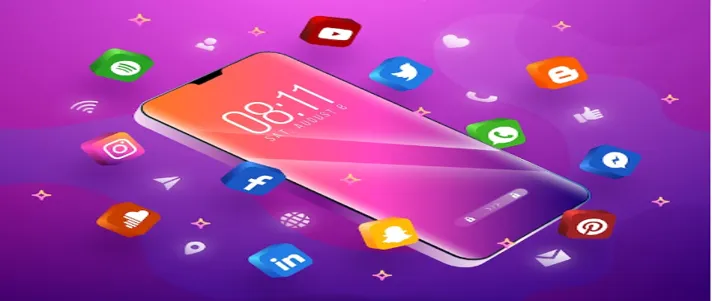
Secondly, let’s compare SMS marketing to social media marketing. The latter has seen a surge in recent years due to the rising popularity of platforms like Facebook, Instagram, and Twitter.
Unlike social media marketing, which often requires regular, time-consuming content creation, SMS marketing can be more straightforward.
Yes, crafting a compelling text message takes skill, but it’s typically quicker and more cost-effective than designing and creating a full social media campaign.
Moreover, SMS marketing does not rely on algorithms for your messages to reach your audience. Social media platforms use complex algorithms that determine the visibility of your posts, meaning that your content might not always reach all of your followers.
On the contrary, SMS marketing ensures that your message lands directly in your customer’s inbox.
Again, this does not mean that social media marketing isn’t beneficial. Social media is a fantastic platform for brand building, engagement, and customer service.
It’s more about understanding where SMS marketing fits into your overall strategy and how it can be used in conjunction with other channels.
SMS Marketing vs. Search Engine Marketing
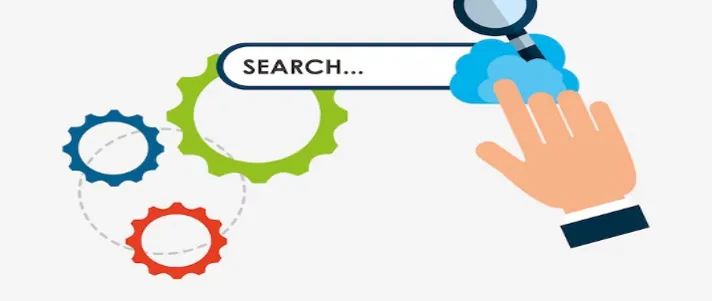
Lastly, let’s examine SMS marketing in relation to search engine marketing, including SEO (Search Engine Optimization) and SEM (Search Engine Marketing).
These techniques involve optimizing your website to rank higher on search engine result pages or using paid advertising to appear at the top of these pages.
While other marketing channels are continually changing (think of the ever-changing Google algorithms or Facebook ad rules), the simplicity of SMS marketing remains pretty much constant.
This stability means you can focus more on crafting your perfect message and less on keeping up with the latest platform changes.
However, keep in mind that SMS marketing and search engine marketing serve different purposes and can work together effectively.
Search engine marketing helps drive traffic to your website, while SMS marketing can help nurture leads, engage customers, and drive conversions.
SMS Marketing and Compliance

Navigating the world of SMS marketing isn’t just about crafting the perfect message; it’s also about understanding and adhering to the laws and regulations that govern it.
The last thing any business wants is to end up on the wrong side of the law because of a poorly managed SMS campaign.
1. Regulatory Compliance

Remember when we talked about opt-in and opt-out mechanisms? They’re not just good manners, they’re often the law. For example, in the United States, the Telephone Consumer Protection Act (TCPA) requires businesses to obtain express written consent from customers before sending promotional SMS messages.
This requirement ensures customers only receive texts they’ve agreed to, protecting them from unwanted spam. It’s also a crucial factor in building trust between a business and its customers.
Therefore, understanding and respecting these rules isn’t just a legal obligation; it’s a way to show your customers you value and respect their personal space and privacy.
Similarly, other countries have their own regulations like the General Data Protection Regulation (GDPR) in the European Union, which businesses must comply with when sending SMS messages to customers in those regions.
Another important point to note is that some regulations dictate the specific hours during which promotional messages can be sent.
Ensuring that your SMS campaigns abide by these stipulations will help maintain your brand’s reputation while keeping you clear of any potential legal infringements.
2. Ethical Compliance

Beyond legal compliance, it’s also important to consider the ethics of your SMS marketing campaigns. This involves respecting your customers’ boundaries, ensuring transparency, and promoting a mutually beneficial relationship.
Just because you have your customers’ phone numbers doesn’t mean you should bombard them with messages at all hours.
To create an ethically compliant SMS marketing campaign, consider the following:
- Always get consent: Only send messages to customers who have explicitly opted in.
- Be transparent: Clearly explain what customers are signing up for when they opt into your SMS campaign.
- Offer value: Make sure your messages offer value to your customers, whether that’s exclusive discounts, valuable information, or personalized recommendations.
- Respect opt-outs: If a customer chooses to opt out, respect their decision immediately. Continually sending messages after a customer has opted out is not only unethical but can also lead to legal consequences.
SMS Marketing in Action: Case Studies
Understanding how businesses have successfully utilized SMS marketing can provide valuable insights and inspiration. Here are a few case studies that illustrate the power of SMS marketing:
Case Study 1: Retail

A leading fashion retailer wanted to promote its summer sale. They decided to use SMS marketing, targeting customers who had previously purchased summer clothing.
The customers received personalized text messages, offering them an exclusive preview of the sale before it opened to the general public.
The campaign resulted in a significant increase in sales, with a return on investment (ROI) that far exceeded the retailer’s initial expectations. The success of this campaign highlighted how SMS
marketing, when used correctly, can drive customer engagement and sales.
Case Study 2: Healthcare

In the healthcare industry, missed appointments can lead to significant costs and disruptions. A regional healthcare provider decided to tackle this issue using SMS marketing.
They implemented a system where patients received appointment reminders via text messages 24 hours before their scheduled visit.
The result? A substantial decrease in no-show rates, leading to improved efficiency and cost savings for the healthcare provider.
This case illustrates how SMS marketing can be used to solve specific industry issues effectively.
Case Study 3: Non-profit

A non-profit organization aimed to boost its fundraising efforts using SMS marketing. They sent text messages to their donor base, offering them a simple and quick way to donate through a text-to-donate campaign.
The texts included compelling stories about how their donations could make a difference.
The campaign led to a surge in donations, proving that SMS marketing can be a powerful tool for non-profit organizations. It also demonstrated how emotion-driven content, coupled with a convenient call-to-action, can drive engagement and response rates.
SMS Marketing: Best Practices
We’ve touched on several aspects of an effective SMS marketing campaign, from obtaining customer consent to personalization and the importance of timing.
However, to truly maximize the benefits of SMS marketing, there are several best practices to consider.
Be concise
Text messages are limited to 160 characters. While some platforms allow for longer messages, it’s still best to keep your texts short and sweet.
A clear, concise message is more likely to be read and understood by your customers.
Include a clear call to action
Every SMS marketing message should include a clear call to action (CTA). Your CTA guides the customer on what to do next, whether that’s visiting your website, calling a phone number, or redeeming a coupon.
An effective CTA is action-oriented and compelling, urging the customer to take immediate action.
Use personalization
As mentioned earlier, personalization can significantly boost engagement rates. Using your customer’s name is a simple way to personalize your text messages.
However, you can go a step further by tailoring your message based on the customer’s past interactions with your business, their preferences, or their behaviors.
Segment your audience
Not all customers are the same, and different segments may respond differently to your messages. Segmenting your audience allows you to tailor your messages to different customer groups based on criteria such as age, location, past purchases, and more.
This targeted approach can lead to higher engagement and response rates.
Monitor and adjust your campaign
Like any marketing campaign, it’s crucial to monitor your SMS marketing campaign’s performance and adjust your strategy as necessary.
Keep track of metrics like open rates, response rates, conversion rates, and ROI. Use these insights to refine your campaign, test different messages, CTAs, and send times to see what works best.
The Future of SMS Marketing
While SMS marketing has been around for a while, it is far from outdated. In fact, as the number of mobile phone users continues to rise globally, SMS marketing’s potential reach is increasing.
Here are some trends we expect to see in the future of SMS marketing:
Continued growth
As mentioned earlier, as of 2023, there are nearly 7.33 billion mobile users worldwide. With more people owning smartphones and becoming comfortable with businesses contacting them via text, the reach and acceptance of SMS marketing are set to continue growing.
More integration with other channels
While SMS marketing is powerful on its own, it can be even more effective when integrated with other marketing channels.
For example, businesses might combine SMS marketing with email, social media, and search engine marketing to create a multi-channel marketing strategy. This approach provides multiple touchpoints, increasing the chances of reaching and engaging your customers.
Increased use of automation
Automation allows businesses to send timely and personalized text messages without manual intervention. For instance, a customer might automatically receive a welcome text after signing up for a newsletter, a birthday discount, or a reminder for an abandoned shopping cart.
As businesses recognize the benefits of automation, we expect to see its use in SMS marketing increase.
More emphasis on customer service
SMS is not only for promotions. More businesses are using SMS to improve customer service, offering instant support and updates via text. This trend is likely to continue as businesses seek new ways to enhance the customer experience.
Conclusion
In conclusion, SMS marketing is a powerful tool that allows businesses to connect directly with their customers. Its high open rates, immediacy, cost-effectiveness, and personal touch make it an excellent choice for businesses seeking to enhance their marketing strategy.
However, a successful SMS marketing campaign requires careful planning and execution. Businesses must respect legal and ethical guidelines, ensuring they obtain customer consent and provide value in every message.
Looking forward, we expect to see SMS marketing continue to grow and evolve, integrating with other marketing channels, leveraging automation, and enhancing customer service.
Whether you’re new to SMS marketing or looking to improve your current strategy, we hope this guide has provided valuable insights and inspiration.
Remember, the key to SMS marketing success lies in understanding your customers, offering value, and continually monitoring and adjusting your approach. Happy texting!
Here is a list of the best SMS Marketing tools out there.
Frequently Asked Questions About WHAT IS SMS MARKETING
Businesses use SMS Marketing to reach potential customers, drive sales and loyalty, and increase brand awareness.
The benefits of SMS Marketing include high open rates, personalization, cost-effectiveness, and the ability to reach a wide audience quickly.
Types of messages that can be sent via SMS Marketing include promotional messages, appointment reminders, customer service updates, and more.
The cost of SMS Marketing depends on the number of messages sent and the provider. Generally, it is much cheaper than other forms of marketing.

